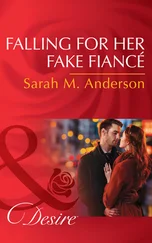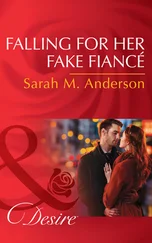I shall not give them to you today — I should not like anything to happen to spoil the midnight service. I suppose it will be my last — I should like it to go well. I shall take them to you tomorrow morning, before we go to lunch with Reg, and tell you that I want them to be all for you — I know how greedy you are about chocolates and how pleased you will be not to be expected to share them. And when you go home in the evening you will open the box and eat them, as you always do, one after another until they are all gone.
I intend to place this letter at the bottom of the box. It may be that you will notice it soon after you have finished the top layer of chocolates and that you will still have strength enough to summon help. I do not think, however, that it will be in time to save you; the Athenians, in whom I have great confidence, considered hemlock a most reliable poison.
You may also, of course, have time and strength to denounce me. Even if you do not, I think it unlikely that I can retrieve this letter before it falls into the hands of the police. I suppose that they will put me in prison: but I’m unable to care very much about that — I feel you have made me accustomed to imprisonment.
I do not know if you will suffer much. It was suggested in the article I mentioned that death by hemlock might be less painless than Plato would lead us to believe. You cannot expect me to care a great deal about that: I am human; and God, who delights in suffering, has made me in His own, unspeakable image.
Maurice

His friends all said that the letter should be burnt.
“You see,” said Regina, “we all know he wouldn’t really have done it. It’s quite absurd to think that Maurice could poison anyone. If he hadn’t been taken ill on Christmas Eve, he simply wouldn’t have given Daphne the chocolates. But of course when I found Maurice’s Christmas presents in the drawer of his desk, I gave Daphne the one with her name on it, just as I did with everyone else. So her dying was really just an accident and Maurice is no more to blame for it than I am.”
“What I don’t quite understand,” said Selena, “is how the letter comes to be in your possession.”
“Well,” said Regina, looking slightly surprised, “it was beside the poor girl’s body when I found her. And I didn’t want the police to find it, so I put it away in my handbag before they came. And the empty chocolate box and all the wrappings, of course.”“Oh dear,” said Julia, turning rather pale. “I’m not entirely sure you should have done that, Reg. I think they might call it tampering with the evidence.”
“Oh nonsense, Julia,” said her aunt. “How could it possibly be right to let the police find something which would only mislead them? I knew perfectly well that Daphne’s death was simply an accident, but if the police had seen Maurice’s letter they’d have been bound to say that he poisoned her on purpose. And then there’d be horrible stories in all the newspapers and that’s how everyone would remember him, not as the kind of person he really was at all. And it simply wouldn’t be fair.”
It was with some difficulty that I persuaded them of the dangers of burning the letter; the danger that the inquest would find on the following Monday that Daphne had died by some criminal act: the danger that some innocent person would be suspected of the crime: the danger, in particular, that the person suspected would be Terry himself They finally agreed that it should be placed in a sealed envelope and lodged in the custody of some respectable bank.
The documents in Isabella’s filing cabinets I did not attempt to save from the bonfire: though their destruction caused me, as an historian, a certain pang of distress, I supposed that it would add to the sum of human happiness. Besides, I could not think quite what else could be done with them.
The only remaining object of contention was the Book; impressively large and bound in leather, as Regina had described it, it still occupied, as it had when she first visited Isabella, the display cabinet at the end of the long drawing room. While disclaiming any superstitious belief in its malevolent powers, they all seemed curiously reluctant to handle it. At length, since books are not among the things I am afraid of, I offered to take custody of it.
On the Wednesday before Easter there was champagne in the Corkscrew: the bookshelves had finally been installed; subject only to the return of the electrician to fit the lights, the refurbishment of 62 New Square was complete.
Several weeks had by now elapsed since the inquest on Daphne’s death. Griselda had given evidence that hemlock was one of the plants which had once grown in the physic garden of the Old Rectory and perhaps still survived there; she had also drawn attention to the similarity in appearance between hemlock and parsley The jury had taken no more than a few minutes to return a verdict of death by misadventure.
In the meantime, thinking it prudent to recommend the destruction of any medicines acquired from Isabella which Sir Robert might happen to have in his possession, I had telephoned Miss Tavistock. She told me that Isabella had indeed from time to time given him medicine for various ailments; but he had used the last of it the previous summer, when he had been in France and caught a heavy cold. My theory regarding the deaths of Isabella and the Reverend Maurice could have had no clearer confirmation.
One aspect of the affair, though of no intrinsic importance, had for some time continued to puzzle me: the letter which Maurice had posted shortly before Christmas, apparently as a result of his conversation with Julia about insider dealing, and which I had supposed to have been addressed to Sir Robert Renfrew. To whom had it been written? What had it said? Was it after all entirely unconnected with the insider-dealing business? I became almost resigned to never knowing the answer to these questions.
A few days before Easter, however, I had happened to encounter Benjamin Dobble on the steps of the Bodleian Library. Our conversation had turned to Terry Carver and we spoke of his attachment to the Reverend Maurice.
“He must have been a dear old thing,” said Benjamin. “I wish I’d met him. He wrote to me once, you know.”
“Wrote to you? Why?”
“Oh, it was a rather strange letter. He wanted to know the name of the man who lived opposite my flat in Cannes, but I imagine he just wanted an excuse to get in touch with me in the hope of getting in touch with Terry again. But before I had time to ask Terry what he’d like me to do about it there was a telephone call saying he was ill and Terry went back anyway. And then of course I heard he’d died, so there was no point in doing anything about it.”
I now felt able, therefore, not only to share in the general rejoicing at the completion of the bookcases but also to reflect with modest satisfaction on the successful completion of my investigation.
“I am not entirely sure,” said Selena as she filled my glass with champagne, “in what sense precisely you are using the word ‘successful.’ ”
“I mean,” I said, “that the truth has been established.”
“Yes,” said Selena. “Yes, I suppose it has. But not exactly as a result of your investigation — as a result of Maurice’s letter.”
“That, certainly, was of great assistance in establishing how Daphne died. Daphne’s death, however, was peripheral to the main subject of my investigation — that is to say, the deaths of Isabella and Maurice and the insider-dealing problem.”
“But Hilary, most of your theories about those matters have turned out to be entirely wrong.”
“My dear Selena,” I said, “to be always right is the claim of the charlatan, not of the Scholar. The mark of true Scholarship is a fearless and unflinching readiness to modify one’s theories in the light of new evidence.”
Читать дальше













